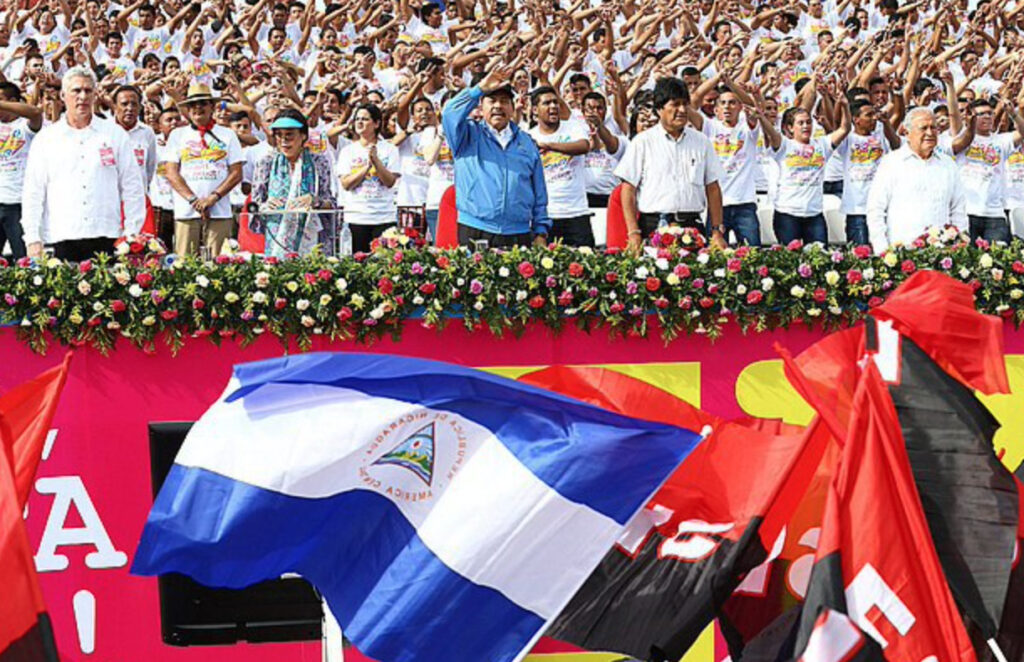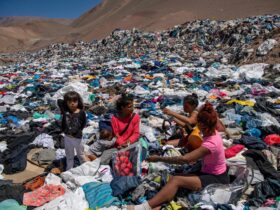LOS ANGELES — In July 1979, the Nicaraguan government experienced a substantial change in leadership. Anastasio Somoza Debayle, a brutal dictator of the country during the 1970s and the last of the Somoza regime, was overthrown by the Sandinista National Liberation Front after a lengthy, bloody campaign.
Fast forward through five years of tumultuous conflict known as the Contra War, and a new leader, Daniel Ortega, finally takes office.
A lot has changed since then, both for Nicaragua and Ortega. Once a man who staunchly opposed a cruel dictatorship, it seems Ortega has now taken up an eerily similar role in the country.
As of Nov. 9, Ortega officially cruised to a fourth and fifth consecutive term in office, winning a whopping 75% of the ballots cast, according to Nicaragua’s Supreme Electoral Council. Naturally, this does not come as a surprise to those acquainted with Nicaraguan politics.
Just last summer, four prominent presidential candidates in the upcoming election, along with nine other opposition figures, were all arrested in a matter of weeks. Ortega has even gone so far as to arrest former Sandinista allies of his, all to maintain a firm grip on Nicaraguan politics.
The United States plans to initiate harsh sanctions and visa restrictions on individuals associated with the Ortega regime Sanctions have been, and continue to be, implemented on Nicaraguan officials who attempt to prevent the rising dictatorial tide.
Ortega’s reelection marks a noticeable trend in Latin American and world politics in recent years. Many developing nations continue to experience sham elections and democratic backsliding, as many leaders tighten their control over the government and their constituents. There have been myriad examples of this, most notably in Eastern Europe and Latin America.
In addition, the possibility of mass migration as a result of Ortega’s reelection poses numerous questions for the Biden administration and other Central American nations. Will border protection be able to handle a large influx of migrants? Should they be granted asylum? If so, how many? While these challenges cannot be solved overnight, they become more pressing each day and will soon need to be addressed in order to prevent significant consequences.
Latin America’s Shift Toward Autocracy
While Ortega’s blatant suppression of opposition figures is one of the most prominent examples of democratic backsliding in Latin America in recent years, it is certainly not the only case.
Venezuela has also experienced similar anti-democratic events. In Jan. 2020, current President Nicholas Maduro attempted what had been labeled by the opposition as a parliamentary coup, in which police officials barred opposition leader Juan Guaido from entering the National Assembly to elect the president of the parliament.
The International Criminal Court (ICC) is also looking into the Maduro regime for alleged crimes against humanity. This comes after the UN accused Venezuelan security forces of excessive and brutal force taken against protestors of Maduro’s leadership. Similar to that of Nicaragua, Venezuela also appears to be quelling a rebellion against the ruling government in an anti-democratic fashion.
Nicaragua’s western neighbor El Salvador also came under intense scrutiny by the international community after armed military soldiers entered the country’s parliament to help “back” President Nayib Bukele’s crime package legislation. Members of the opposition labeled the move as an act of intimidation and possibly the actions of a dictator.
Bolivia has also faced attempts to breach democratic institutions . After an interim government was established following the removal of former president Evo Morales, the interim government of Bolivia postponed elections for a new leader, citing COVID-19 concerns. Temporary leadership also wielded the pandemic as a tool to crackdown on criticism of the government in the media and the administration allegedly tapped into COVID relief aid to boost it’s own electoral campaign.
Many of the democratic institutions that have been established in major Latin American countries are beginning to be tested. While Latin America remains the third most democratic region globally, with only 27% of the region experiencing democratic interruptions in the past 40 years, both a suppression of opposition forces and a lack of election integrity threaten the voices of millions of people and the stability of the region.
The Immigration Problem
Recent results of the election in Nicaragua have also exposed substantial issues regarding immigration. Thousands are expected to flee due to Ortega’s reelection, which comes after a huge surge in Nicaraguan migrants to both the U.S. and other Latin American countries in recent years.
Over 80,000 Nicaraguans currently reside in neighboring Costa Rica as refugees, a popular destination for migrants fleeing the worsening conditions in Nicaragua. Many others seek refuge beyond Costa Rica in countries such as Mexico and the United States.
Nicaraguans typically represent a small percentage of Latin American migrants who try to enter the United States from the Southern border. Since Oct. 1 of this year, U.S. Customs and Border Protection has stopped over 19,000 Nicaraguan migrants at the U.S.-Mexico border, an increase by more than 6,000 in fiscal year 2019.
Similarly, El Salvador continues to have high numbers of migrants at the Southern U.S. border, stemming from the country’s shift away from democratic values.
Haiti has also experienced a mass exodus of emigration to the United States. As of Sept. 2021, over 45,000 Haitian migrants had been arrested by U.S. Customs and Border Protection (CBP) at the Southern border, a sharp rise from just 4,400 in 2020. This comes after CBP reportedly “rounded up” Haitian migrants on horseback with whips.
The United States continues to be under scrutiny by domestic and international entities for their treatment of migrants at the Southern border. Many U.S. democrats, along with organizations such as Amnesty International, criticized the Biden Administration for their crackdown on Haitian migrants and overall protective immigration policy. U.S. republicans continue to push a more strict border policy, demanding that Latin American caravans and mass migrations be stopped at the border.
It is clear that this uptick in immigration as a result of the recent Nicaraguan election will undoubtedly exacerbate this issue for the Biden administration.
This not only poses an immigration issue for the United States but other Latin American countries as well, such as Mexico and Costa Rica, two countries that have experienced mass inflows of migrants in recent years and will undoubtedly face similar domestic tensions as the United States.
The Bigger Picture
This growing problem reflects a larger dilemma for countries such as the United States: to what extent should developed nations get involved in the politics of foreign states?
While the United States remains very involved in Latin American development with trade deals such as the Comprehensive and Progressive Agreement for Trans-Pacific Partnership (CPTPP), it remains distant from the growing autocratic states. Both President Maduro of Venezuela and President Ortega of Nicaragua have expressed their anguish with Western nations and have made it clear that cooperation is not on the horizon. Ortega recently called EU officials former associates of Hitler who helped assist the U.S. in a campaign for colonialism in Nicaragua, and Maduro remains hostile to foreign influence after Western nations backed the opposition leader, Juan Guaido.
These contrasting factors reflect the delicate nature of the relationship between Latin America and developed countries. This poses a unique challenge for the United States, who must balance a growing economic partnership with its Southern neighbors with a stable border and rule of law. Thus, what can be done to help quell the mass exodus of Nicaraguans fleeing the desperate situation in their country?
Establishing sustainable, long-term, economic development in Latin America is an effective way to mitigate mass migration. Most immigrants wish to stay in their home country, but are forced to leave due to economic stagnation. Continuing to promote regional economic integration between the United States and Latin America through partnerships such as the CPTPP will help establish more permanent economic growth.
Continuing a dialogue with Latin American countries is also essential for maintaining strong ties, which can help address systemic problems such as immigraiton. The upcoming Summit of Americas will be a great platform for President Biden to engage in conversation with top Latin American officials about climate change, economic development, COVID-19 and more, and begin to whittle away at some of the tensions currently facing the two regions.
It is clear that the United States and other developed countries must address these concerns with Latin American nations experiencing democratic backsliding,, and try to put democratic institutions at the forefront of Latin American politics once more. But until then, there will continue to be political unrest, fraudulent elections, growing dictatorial rule, and millions of people struggling to have their voices heard in Latin America.







